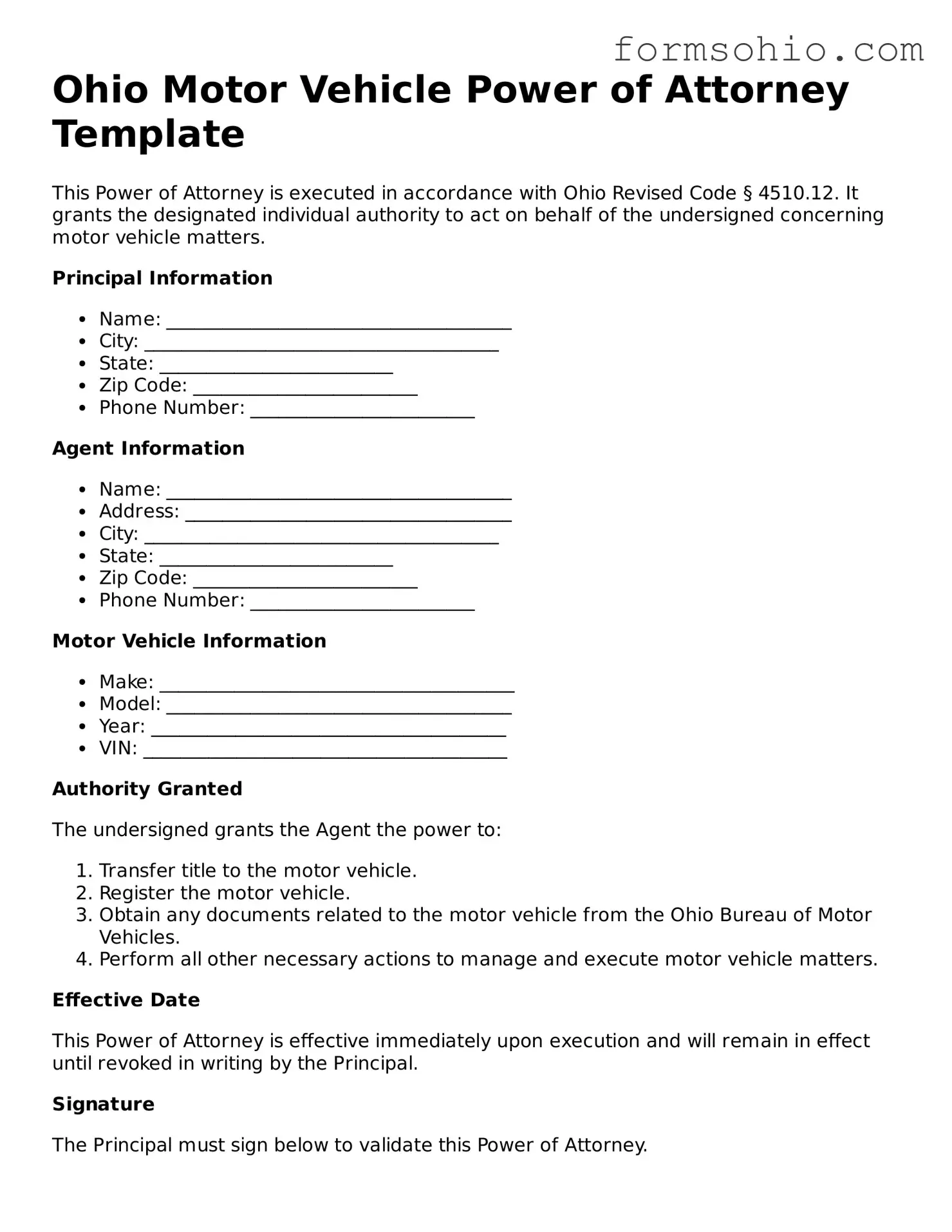Printable Motor Vehicle Power of Attorney Template for the State of Ohio
The Ohio Motor Vehicle Power of Attorney form allows an individual to authorize another person to act on their behalf regarding motor vehicle transactions. This legal document is essential for those who need assistance with tasks such as title transfers, registration, or other vehicle-related matters. Understanding its importance can help ensure smooth handling of your vehicle affairs.
Get This Document Online

Printable Motor Vehicle Power of Attorney Template for the State of Ohio
Get This Document Online
Complete this form efficiently and quickly
Complete Motor Vehicle Power of Attorney online without printing hassles.
Get This Document Online
or
Free PDF File
